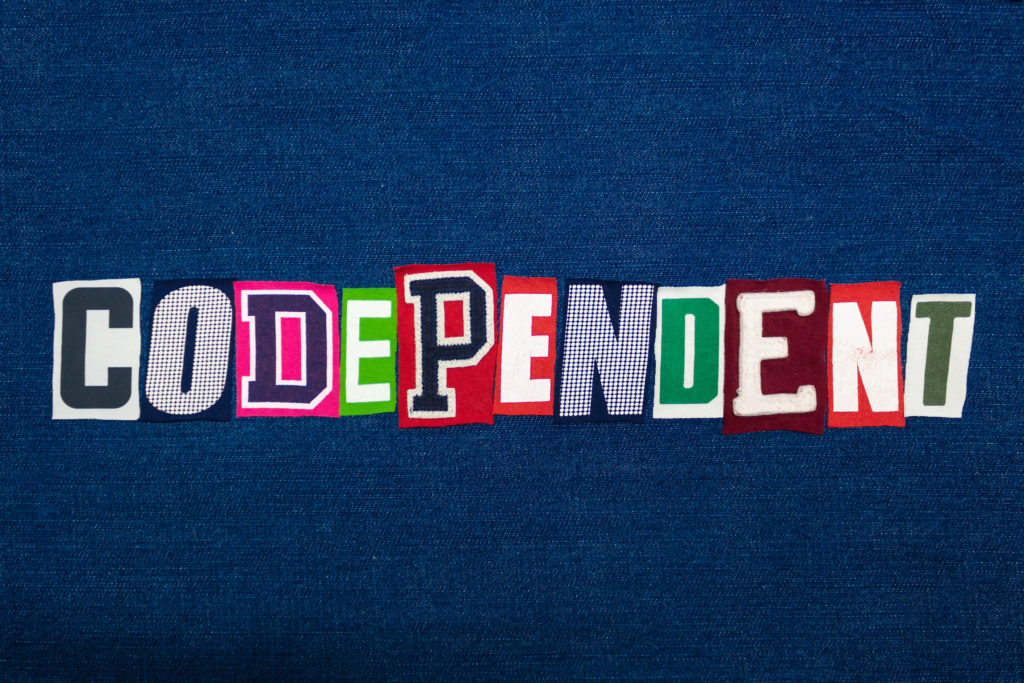
By Brooke B. Sellas, {grow} Contributing Columnist
Codependency in business or “business codependency” is real. And if you suffer from it, you’re likely having a tough time right now. I know I am!
Hi. My name is Brooke, and I’m a codependent leader.
This means the needs and feelings of others are often more important than my own feelings and needs. It means boundaries can be blurry and I have a hard time saying no.
Is this resonating? Keep reading! If you’re currently feeling confused, angry, overwhelmed, or hurt in your business, you may find it helpful as I explain my own issues with business codependency.
Identifying Business Codependency
I am not ashamed to admit that I’m “halfway normal” because I spent years in therapy. I knew I was codependent before my codependency showed up at work.
Professionally, it can be harder to spot codependency. Here’s what it looked like for me …
- Lack of trust
- Avoidance of conflict
- Difficulty saying no or setting boundaries
- Feeling guilty saying no
And while you may be saying, “yeah, everyone feels that way,” those small things can lead to much bigger issues.
How many of you reading this have gone above and beyond to fix a problem? Or tried to smooth things over or win business by making exceptions to your normal policies?
Who has dropped everything they’re doing to help a client who “needed it yesterday” or to pacify an angry client?
How many of us are spending WAY too much time and energy on clients who aren’t paying nearly enough?
I can raise my hand for each of those things because of my business codependency issues.
And right now, while the world is seemingly on fire, all of our awful traits are exemplified by infinity percent (that’s a REALLY BIG number, y’all).
Business Codependency Horror Stories
First, some gasp-worthy stuff. I’m willing to put it all out there as a way to 1) tell on myself and start making changes, and crush my self-doubt and 2) hopefully help any other people with business codependency problems.
Emotional People Decisions
Time and time again I’ve found myself making people-decisions based on emotions. Because I want to avoid conflict, I give entirely way too many chances to people who have been utterly BAD for our culture. Or people who just didn’t have the skillset they said they had. My codependency got in the way of good business decisions and practices.
The sobering fact here is that because I didn’t address something quickly and sharply, I let other team members be affected negatively. Ouch. This is something I’m REALLY working on now.
However, I’m not quite to the “fire fast” mentality.
No Trust, No Delegation
As a leader, you have to know when and how to delegate. As a leader with business codependency I have a hard time trusting some people to get something done. I’d rather do it myself so it gets done “right” (I’m also a perfectionist!).
But lack of delegating not only hurts the business it hurts the team by not providing them the opportunity to professionally develop. I’m depriving the people around me of bigger responsibilities and the ability to make impactful decisions.
Lower Rates = Lowered Value
Lastly, I’m guilty of lowering our rates to avoid having to say “no” to clients that can’t afford us. Every time I do this, I end up kicking myself because the message I sent was ghastly.
It reads something like this: We weren’t really worth that much, anyway!
And on the client side, when you lower your rates, you immediately lower your value and worth. Additionally, these are the clients who end up being the WORST scope creepers and price gougers. You’ll find yourself stuck in a hole just trying to dig your way back to market price. But sadly, you’ll rarely get there.
How does this get fixed?
Reversing Codependent Business Patterns
First, a few affirmations. Because you can’t have a business codependency and continue to be hard on yourself.
- Every business leader makes mistakes; mistakes allow us to learn and grow.
- Perfectionism doesn’t serve ANYONE.
- It’s okay to say no.
- Setting — and sticking to– boundaries is healthy.
- Someone else’s problem is not automatically my problem.
- I choose to work with team members and clients who respect me and my work.
- I will value my time and work (and share it with people who do the same).
Additionally, I’ve started to try and dissect things better when my inner dialogue says something codependent. If I’m getting too negative or non-confrontational, I affirm my worth and my boundaries.
I’m also aiming to take things less personally. This is business. People can dislike our work and still like me as a person. But more importantly, I shouldn’t conflate the two. I don’t need people to approve of me or like me personally to run a successful business.
The BIG OVERALL GOAL of mine is to drill this mantra into my head: As CEO of my company, which has many moving parts, it’s not my job to make sure others’ parts, or others, are moving! I stole this from a Forbes article by Sandi Krakowski and LOVE it.
It means if I hired you to do a job, I expect you to do it. Period.
Again, I’m not all the way “there” yet but I’m working towards this every day.
What About Empathy?
Finally, all of the above can sound like I’m pushing myself to lack empathy. But it isn’t.
Codependent leaders, like me, take issue with asserting authority. Because of this, they tend to be more permissive; they find excuses to justify mistakes or poor performance. This is actually called being overly empathic, or empathetic reactivity.
With COVID and these current times, it’s important that we be empathetic. However, we need to be aware that empathy does not necessarily mean taking on other people’s feelings. We can put ourselves in their shoes without becoming the “fixer” of their problems.
Hi. My name is Brooke, and I’m a codependent leader who is working hard to change bad behaviors. How about you?

Brooke B. Sellas is the Founder & CEO of B Squared Media, an award-winning done-for-you social media management, advertising, and customer care agency. She’s also Mark Schaefer’s Co-host on the top-rated Marketing Companion Podcast. Brooke’s marketing mantra is “Think Conversation, Not Campaign” so be sure to give her a shout!


